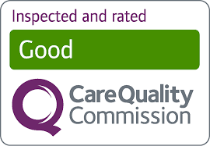The Importance of Caregivers in Providing Quality Care
5th July 2023

Caregivers are essential in providing quality care at The Bill House, ensuring residents receive the physical, emotional, and social support they need. By offering tailored care and creating meaningful connections, caregivers enhance the well-being of those in their charge. Their role goes beyond routine tasks, promoting dignity, health, and comfort for every resident. This article explores how caregivers help elevate the care experience, fostering an environment where residents feel valued and supported.
For more, visit the full article here.
Caregivers play a vital role in residential care and happiness in nursing homes. They provide hands-on support every day and develop close relationships with residents and their families. Caregivers provide individualised care, tailoring their approach based on each person’s unique needs, preferences, and abilities. They establish relationships with the residents, getting to know them on a personal level to adapt to their needs and provide a personalised service.
Personalised Care
Caregivers help residents with essential activities such as bathing, dressing, eating, toileting, and mobility. They ensure that residents receive the necessary support to maintain their personal hygiene, nutrition, and overall well-being. Caregivers will always carry out these tasks with dignity and respect for each resident in the nursing home. Some residents may need more assistance with practical needs, and this will be outlined in their initial assessment.
Emotional Support
Caregivers also provide emotional support and companionship, particularly to those who may feel lonely, isolated, or anxious. This is especially important when a resident first arrives in residential care and extra time is allocated to create bonds with new residents. Caregivers engage in meaningful conversations, listen attentively, and offer empathy and understanding to improve the overall emotional well-being of residents.
Health and Medication
Monitoring residents’ health status regularly is another key aspect of a caregiver’s role. If any changes in health or signs of distress are observed, they report concerns promptly to the appropriate healthcare professionals and ensure that residents receive necessary medical attention. Caregivers are responsible for administering medications according to the prescribed schedule and dosage. They monitor residents’ medication intake, and address any concerns or side effects with healthcare professionals.
Activities and Socialisation
Social interaction and engagement among residents are another aspect of a caregiver’s role. They organize and encourage participation in group activities, outings, and events that promote socialization and create a community within the care home. Fostering a sense of belonging and connection contributes to the residents’ overall quality of life.
Looking for a Residential Care Home in West Sussex?
The Bill House is a sea-view residential home located in Selsey, West Sussex. As well as being the perfect fit for loved ones who require support with daily tasks but want to maintain as much of their independence as possible, The Bill House also provides specialist care for loved ones who have dementia. Get in touch to find out more about us.






